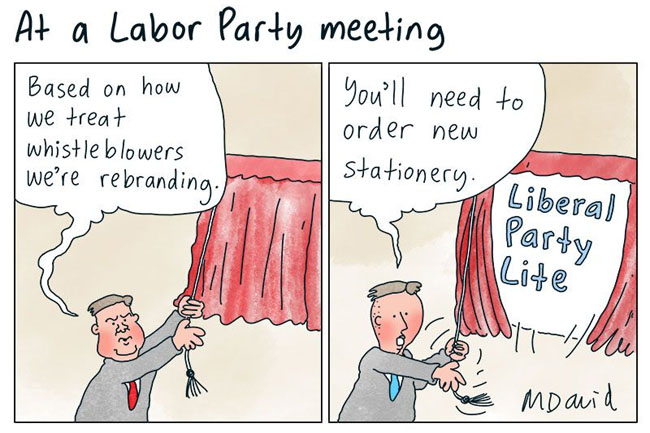The COVID-19 pandemic further rubbishes the idea that austerity is an appropriate economic response, writes Professor John Quiggin.
OVER THE COURSE of this pandemic, I’ve been looking at zombie ideas in economics and the threat they pose. These are ideas that should have been killed by the evidence against them that has accumulated since the beginning of the 21st Century, particularly in the aftermath of the Global Financial Crisis (GFC).
Yet they have remained influential and have made the pandemic catastrophe even worse than it would inevitably have been.
In previous columns, I’ve looked at the great moderation, the efficient market hypothesis, the dynamic stochastic general equilibrium and trickle-down economics.
Together, these form the theoretical basis for market liberalism, or neoliberalism, the economic ideology that has been dominant since the 1970s.
The deadliest zombie of all – which has already made the pandemic catastrophe far worse – is austerity, the idea that the best response to a depressed economy is to reduce public expenditure and cut public services.
As Mark Blyth has explained in his book, Austerity: The History of a Dangerous Idea, such policies deepened the Great Depression and created the conditions for the rise of Adolf Hitler and the Japanese militarists.
Austerity seemed to have been fatally discredited by the experience of the Great Depression, but it re-emerged in the aftermath of the GFC. The most disastrous case was that of the European Union, where the failure of market liberalism forced governments to bail out financial institutions and run large deficits.
Under the institutions of the eurozone, disastrously mismanaged by the European Central Bank under Jean-Claude Trichet, the costs of financial market failure were borne by ordinary citizens who had gained nothing from the excesses of the early 2000s.
Health services were hit particularly hard. "Non-essential" spending of all kinds was tightly constrained. Unsurprisingly, that included preparations for seemingly remote dangers like pandemics.
The near-collapse of health systems as the virus hit was a logical consequence.
The U.S. also switched to austerity after a brief period of stimulus. State and local governments, In the U.S., large numbers of rural hospitals have closed as a result of austerity policies. The consequences will be felt as the virus spreads outwards to rural areas from the urban centres that felt the first impact.
As things stand, this is likely to happen just as social distancing breaks down completely and the Trump Administration descends further into chaos and irrelevance.
For once, however, there is some hope. Many governments, including Australia’s, have abandoned the ideology of austerity and introduced large scale programs to protect workers and firms from the consequences of the lockdown.
Already, this has changed the tone of public debate to the extent that concepts like universal basic income have moved from the fringes to the centre of public discussion.
Equally importantly, the European Union has abandoned the strictures that led it to impose austerity on Southern Europe after the GFC. The neoliberal system under which the eurozone was established forced all governments to accept a common monetary policy, but allowed no scope for a common fiscal policy.
Instead, each country was expected to balance its own budget, without access to any of the usual tools of monetary policy that would allow, for example, a currency devaluation.
This time, things are different. The European Commission, with the support of the German and French governments, has proposed a 750 billion-euro (about $1.25 trillion Australian dollars) recovery fund, mostly made up of grants drawn from the common European Union budget. In effect, if the proposal goes ahead, the European Union will finally become a fiscal union as well as a monetary union.
The pandemic has shown us that, when the chips are down, financial markets and big business are part of the problem, not part of the solution. Governments must step in to rescue both society and the economy.
As John Maynard Keynes observed nearly a century ago:
'The boom, not the slump, is the time for austerity at the Treasury.'
John Quiggin is Professor of Economics at the University of Queensland and the author of Zombie Economics and Economics in Two Lessons.
 This work is licensed under a Creative Commons Attribution-NonCommercial-NoDerivs 3.0 Australia License
This work is licensed under a Creative Commons Attribution-NonCommercial-NoDerivs 3.0 Australia License
Support independent journalism Subscribe to IA.












